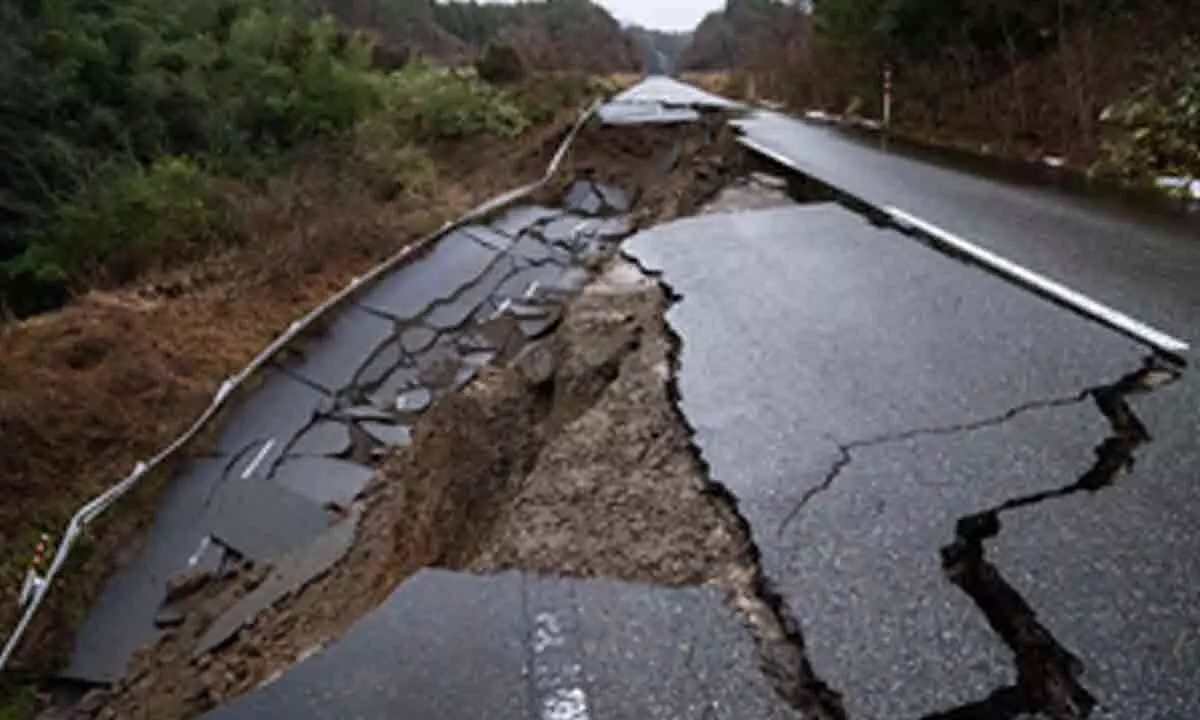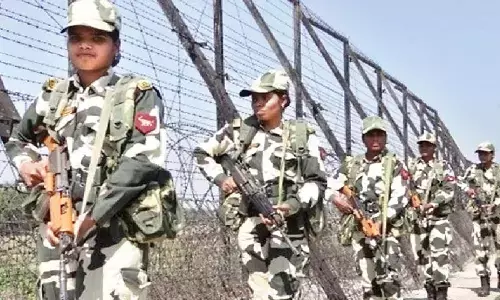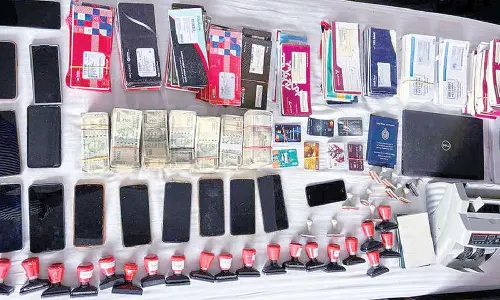Japan quake toll climbs to 48
Share :

At least 48 people have died after a series of powerful earthquakes, with the major one measuring 7.6 on the Richter scale, hit central Japan and the surrounding areas, causing homes to collapse and triggered tsunami warnings, with search operations currently underway for possible survivors trapped underneath the rubble.
Tokyo : At least 48 people have died after a series of powerful earthquakes, with the major one measuring 7.6 on the Richter scale, hit central Japan and the surrounding areas, causing homes to collapse and triggered tsunami warnings, with search operations currently underway for possible survivors trapped underneath the rubble.
According to national broadcaster NHK, injuries were also reported in the prefectures of Ishikawa, Niigata, Fukui, Toyama, and Gifu, reports Xinhua news agency.
Prime Minister Fumio Kishida told a press briefing on Tuesday that relief efforts are being hampered by obstructions on the roads.
This is also making it difficult to send heavy machinery. We're thinking about ways to secure routes and using ships could be one option," the prime minister was quoted by NHK as saying.
According to the Prime Minister, around 1,000 members of Japan's Self-Defence Forces (SDF) were engaged in search and rescue efforts in quake-hit areas.
"We have to race against time to search for and rescue victims of the disaster. Very extensive damage has been confirmed, including numerous casualties, building collapses and fires," he said.
At the same briefing, Chief Cabinet Secretary Yoshimasa Hayashi added that Kishida instructed the government to "put lives first" and to "understand the situation" of the devastation caused by the earthquake, reports the BBC.
"To the people of Japan, please be on alert that there may be earthquakes for about a week of an intensity scale of up to seven. To the people that live in areas where the shake was strong, please look out for evacuation information through local offices, on TV, radio, and internet and take action accordingly," he said.
Hayashi says there are 120 "cases of people" who are waiting to be rescued and then adding "a total of 57,360 people have evacuated".
According to Japan's national news agency Kyodo, a series of building collapses and fires killed at least 30 people dead in the worst-hit Ishikawa prefecture, reports Xinhua news agency.
Ishikawa was the epicentre of Monday's 7.6-magnitude earthquake. In Suzu, on the tip of the Noto Peninsula, six people have died, while further south in Nanao five others also lost their lives.
Some 33,000 households braved freezing temperatures overnight due to a lack of electricity. Many cities are also without running water. Shortly after the quakes, a major tsunami warning was issued by the Japan Meteorological Agency (JMA) for the Noto region, urging people to evacuate immediately.
Tsunami warnings were also in place for Niigata, Toyama, Ishikawa prefectures. As of early Tuesday morning, the JMA lifted all the tsunami advisories. Since Monday, Japan has been hit by at least 155 quakes.
Japan is one of the most seismically active nations on Earth, owing to its location on the so-called Pacific Ring of Fire, where many tectonic plates meet.
The 9.0-magnitude earthquake which hit Japan in 2011 resulted in a tsunami - which tore through the country's north-eastern coastal communities, killing almost 18,000 people and displacing tens of thousands.
Those tsunami waves triggered a nuclear meltdown at the Fukushima power plant, causing the most serious nuclear accident since Chernobyl.








